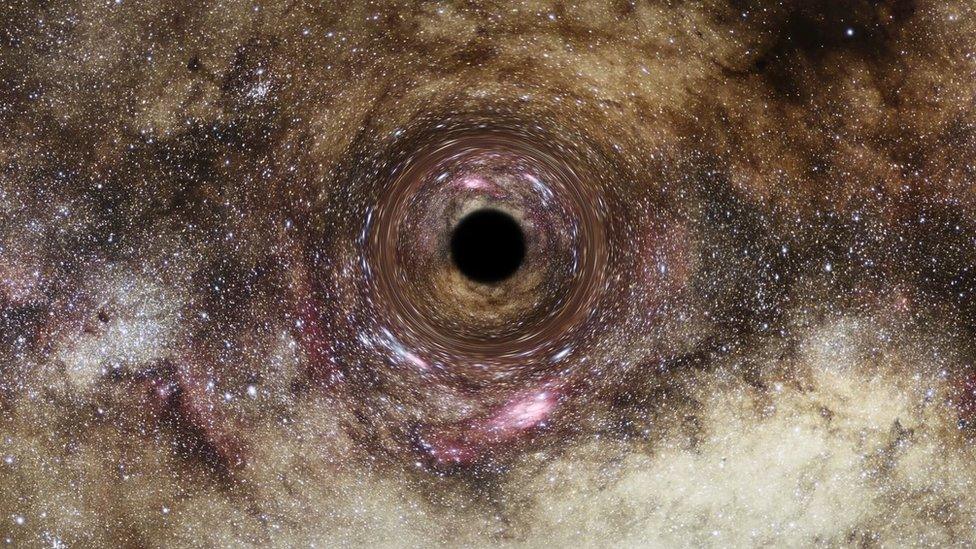'Ultramassive' black hole '30 billion times' the size of the sun discovered
- Published
- comments

Scientists used gravitational lensing to find the "ultramassive" black hole (this is an artist's impression of how it might look)
Scientists think there are hundreds of thousands of black holes in the Milky Way - which is our galaxy - and now a group of UK astronomers believe they've found the largest one in the entire universe!
To give you an idea of its size, the Sun is 109 times bigger than Earth. This newly discovered black hole is thought to be 30 billion times bigger than the Sun!
Dr James Nightingale, who is from Durham University and led the study into the black hole, said he struggled to "comprehend how big this thing is".
How was the black hole found?
Scientist said the way light was warped showed it was being affected by a large black hole
Scientists at the university discovered the black hole using a new technique called gravitational leasing.
This is when they observe the amount of passing light that it pulls in.
The findings of the study were published in the journal Monthly Notices of the Royal Astronomical Society.
Dr Nightingale told the 大象传媒: "Even as an astronomer, I find it hard to comprehend how big this thing is.
"If you look at the night sky and count up all the stars and planets you can see and put them in a single point, it would be a fraction of a percent the size of this black hole.
"This black hole is bigger than the majority of galaxies in the universe."
He said the discovery "pushes our understanding of astronomy to the limits", adding: "How do you form a black hole this big in just 13 billions years of the universe's existence?"
Dr Nightingale also said the use of gravitational lensing could "let us detect many more black holes beyond our local universe and reveal how these exotic objects evolved further back in cosmic time".
What is a black hole?
The universe is home to many black holes - but they're very hard to spot!
Black holes happen at the end of the life cycle of a star.
When some stars die, because they are so huge, their weight and pressure causes them to collapse in on themselves.
Black holes have the ability to suck in anything - including other stars and planets.
Because of this they also suck in light, which makes them very difficult to spot.
It's impossible to physically see a black hole with a space telescope, because they lack any light.
What do you think of this discovery? Are you interested in astronomy and space? Let us know in the comments...
- Published8 November 2022
- Published4 October 2019
- Published15 January 2022
